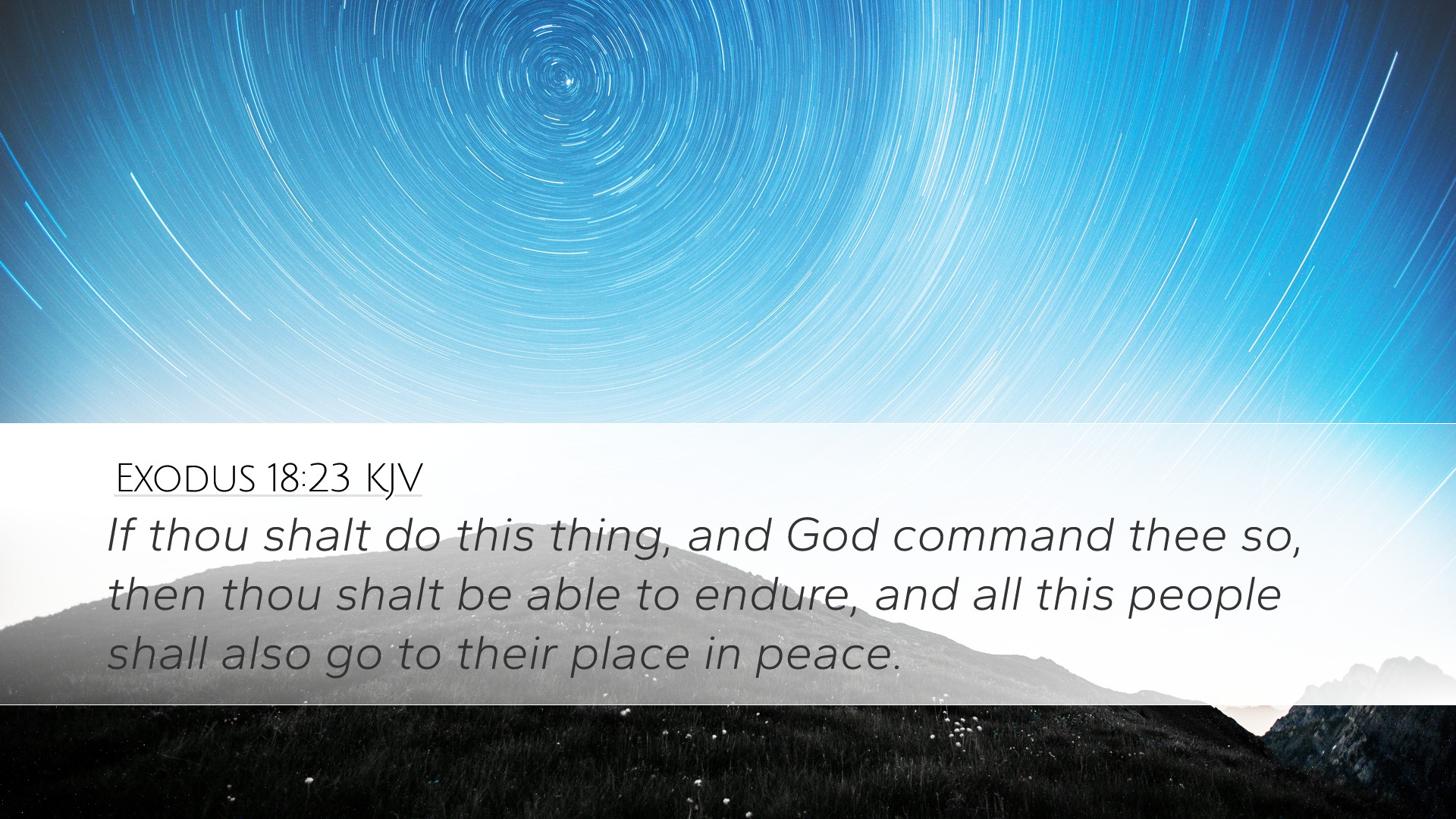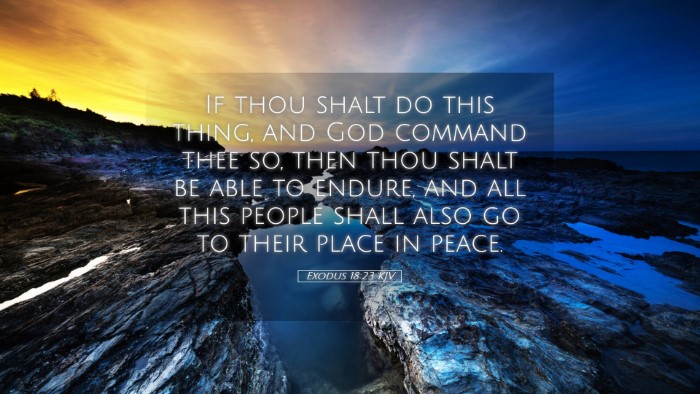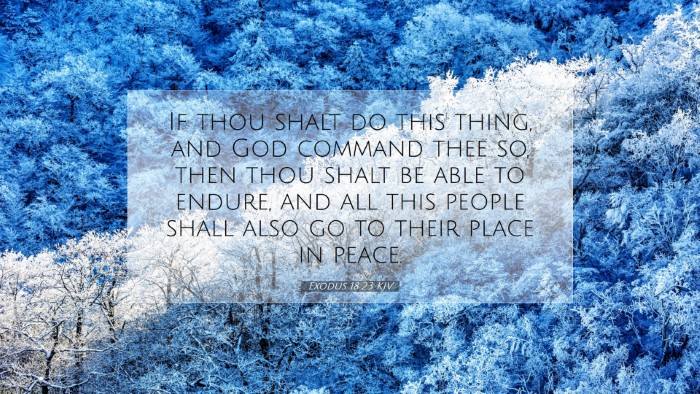Exodus 18:23 - Commentary Overview
Verse: "If you do this thing, and God so commands you, then you will be able to endure, and all this people will also go to their place in peace."
Introduction
Exodus 18:23 is a pivotal verse that encapsulates the counsel of Jethro to Moses regarding the governance of the people of Israel. This verse highlights principles of leadership, delegation, and reliance on divine wisdom.
The Context of Exodus 18
The narrative in Exodus 18 describes the visit of Jethro, Moses' father-in-law, who observes the burdens placed upon Moses as he serves as judge over the Israelites. Jethro's advice points to a practical and divine order in administration, emphasizing the importance of shared leadership.
Historical Significance
- The Israelites have just been freed from Egypt and are navigating their new identity and governance.
- Moses' role as a mediator between God and the people establishes a foundational model for believer leadership in Israel's history.
Commentary Insights
Matthew Henry’s Perspective
Matthew Henry draws attention to the wisdom of delegation inherent in Jethro's counsel. He emphasizes that leaders must seek to avoid burnout by not attempting to bear every burden alone. By appointing capable leaders and judges over smaller groups, the load is lightened, facilitating both justice and peace among the people.
Albert Barnes’ Analysis
Albert Barnes highlights not only the practical wisdom of Jethro’s advice but also the spiritual dimension. He notes that when leaders operate with the clarity of divine will, they are empowered to manage their responsibilities effectively. Barnes asserts that this model of shared leadership ensures that the people can return to their homes in peace, as justice is administered more efficiently.
Adam Clarke’s Exegesis
Adam Clarke adds depth to the interpretation by discussing the implications of divine command in the leadership role. He emphasizes the necessity for leaders to align their decisions with God’s commandments, indicating that success and endurance stem from obedience to divine guidance. Clarke suggests that the peace of the people is a direct consequence of how well leaders adhere to God’s lauded principles.
Theological Implications
This verse invites theological reflection on various themes:
- Leadership and Servanthood: The model proposed is one where leaders serve not only as decision-makers but also as facilitators of community well-being.
- Divine Guidance: Emphasizes the necessity of prayer and finding God’s will in decision-making processes.
- Community and Justice: Highlights the importance of justice in community life, where each person feels valued and heard.
Practical Applications
Exodus 18:23 carries rich practical teachings for modern church leadership and community organization:
- Delegation: Leaders should seek competent partners in ministry to share the burdens of leadership.
- Focus on Prayer: Engaging in prayer for wisdom is crucial before making administrative decisions.
- Ensuring Peace: The ultimate goal in leadership should always be to foster peace among the community, reflecting the heart of God.
Conclusion
Exodus 18:23 serves as a timeless reminder of the balance between divine wisdom and practical governance. The insights from public domain commentaries illustrate how vital it is for leaders, students, and scholars to embrace the principles of delegation, divine adherence, and community care in their ministries and scholarly pursuits. In doing so, they not only fulfill their roles more effectively but also promote a peaceful and just community reflective of God’s kingdom.


